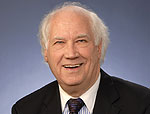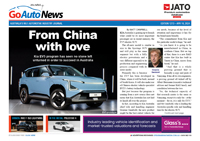Make / Model Search
News - General News - Electric VehiclesElectricity is the futureSmart thinking: The latest electric city car from Norwegian company Think was revealed in London last month. Expert calls on the government to lead the way to a sustainable oil-free future6 Aug 2008 THE former head of the CSIRO’s low-emission transport project, David Lamb, believes that the long-term future for personal transport in Australia lies with electric cars. In the shorter term, Mr Lamb says that ethanol made from sugar cane, natural gas and LPG are the best alternatives to petrol. To avoid a “catastrophe”, he believes it is essential for the federal government to get serious about weaning motorists off increasingly expensive and unreliable oil supplies by making long-term plans and sticking with them. “If you don’t know where you’re going in the longer term, you can’t make short-term decisions,” said Mr Lamb, who is also a motor industry veteran. “Long-term, Australia does not have a plan to cope with a potential oil shortage. If oil gets much more expensive or gets very scarce – which is possible because we’ve increased our rate of usage but we’ve haven’t increased our rate of supply, and it takes a long time to bring new oil finds into production – then we would need alternatives. “Our society is so utterly dependent on cheap oil that we are facing a catastrophe if we do not come up with some plan to secure ourselves in the event that oil becomes really scarce or absurdly expensive. “What we shouldn’t be doing is making ourselves more dependent on fossil fuels, so spending bucket loads of money to try and discover more oil, which only postpones the evil day, is certainly not the thing to do. “The long-term sustainable alternative has got to be electricity.  Left: CSIRO consultant David Lamb. Left: CSIRO consultant David Lamb.“We know how to make electricity emissions-free, it’s just that at the moment we’re saying it is hard and it’s costly, but we know eventually it’s got to be the way. Whether we produce the electricity from solar, or from wind, or from tide, or even from atomic (nuclear) power, we will have a more sustainable non-coal electricity some time in the next few decades. “We’re already electrifying our fleet with hybrid cars. We just have to make them stronger hybrids to the point where the engine is merely a range-extender, then the next step is all-electric city cars. They won’t be any good for running from Melbourne to Sydney, but they’ll be bloody good around town.” Mr Lamb, who also ran the Australian Automotive Technology Centre for the CSIRO and who retired (“for the third time”) only a month ago but remains a consultant, added that there are good short-term alternatives available to bridge the gap to ‘clean’ electricity. He said that ethanol was a good alternative with long-term viability, provided Australia follows the lead of Brazil by making it environmentally friendly from sugar cane. “One of the reasonably easy alternatives that the government could get into is ethanol – and I’m not talking about ethanol from corn like the Americans do it that’s not appropriate for Australia because of the implications for food, and it’s not environmentally sustainable – but if you make it from sugar, as the Brazilians do … it’s far more greenhouse friendly and is more sustainable, and we could produce something in the order of 10 per cent of our fuel needs,” he said. “But there has to be a long-term, consistent, well thought-through policy. Market forces will not look after it. “The Brazilians have had 40 years of experience of making ethanol from sugar cane, they are self-sufficient with fuel to a fair degree, which saves them billions of dollars on importing oil, while we are getting into a bigger and bigger hole importing oil. We’re importing something like 40 per cent of our net needs, which is something like $15 billion. “When you look at the lifecycle analysis … ethanol made from sugar cane is a thumbs-up if you do it under a consistent long-term plan, where everybody knows where it’s going and there’s no chance of a sudden about-turn that puts people’s investments at risk. There has to be a long-term plan for it.” Mr Lamb believes LPG is a sensible alternative because we already have it and a distribution network exists in Australia, but he stresses it is only a short-term solution. “For the long term we must look at non-oil alternatives. That would include natural gas as an interim – even though it is a fossil fuel – and then we should look at the sustainable alternatives and ethanol has got to be the easiest of those.” |
Click to shareGeneral News articlesResearch General News Motor industry news |









Facebook Twitter Instagram